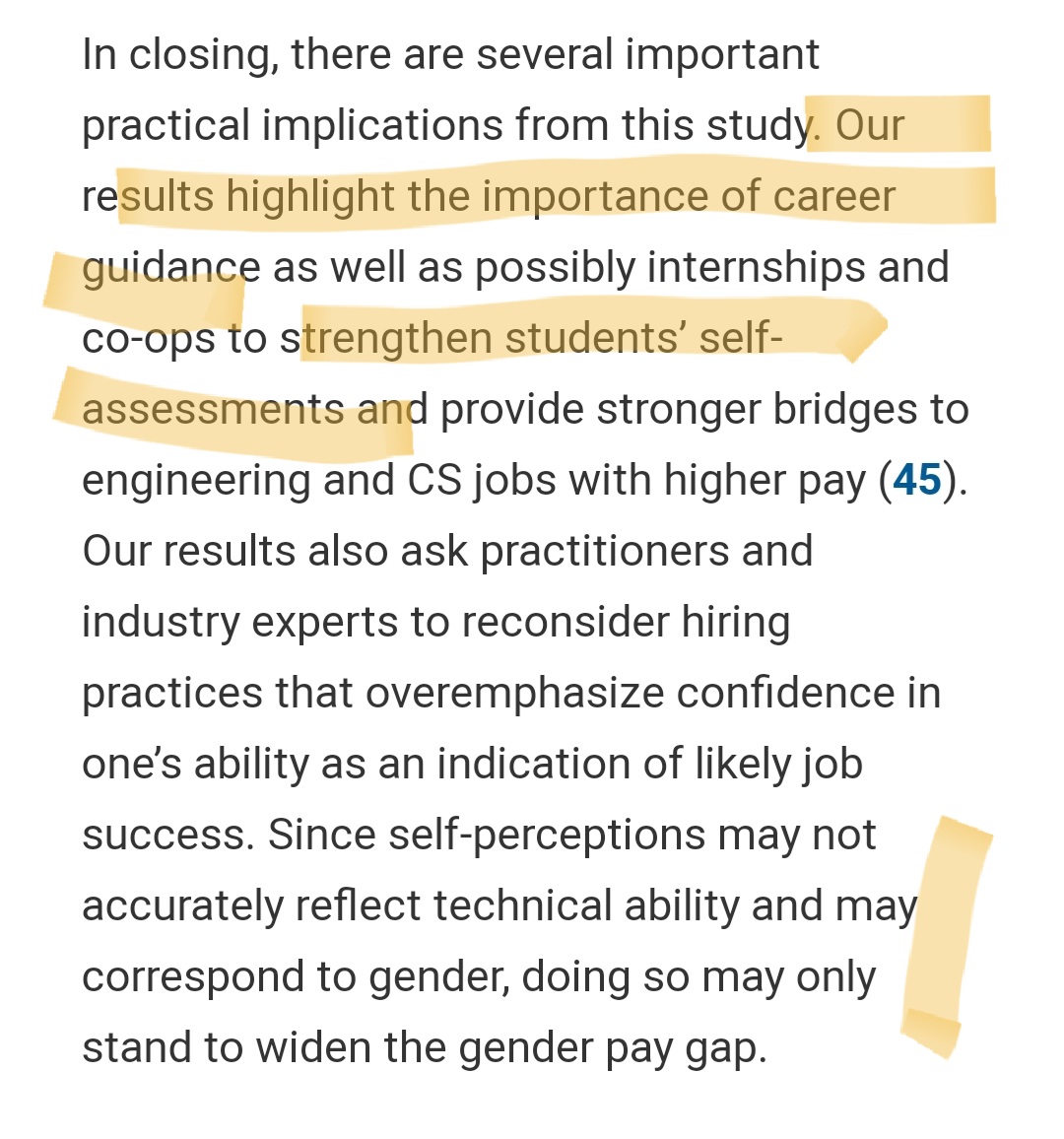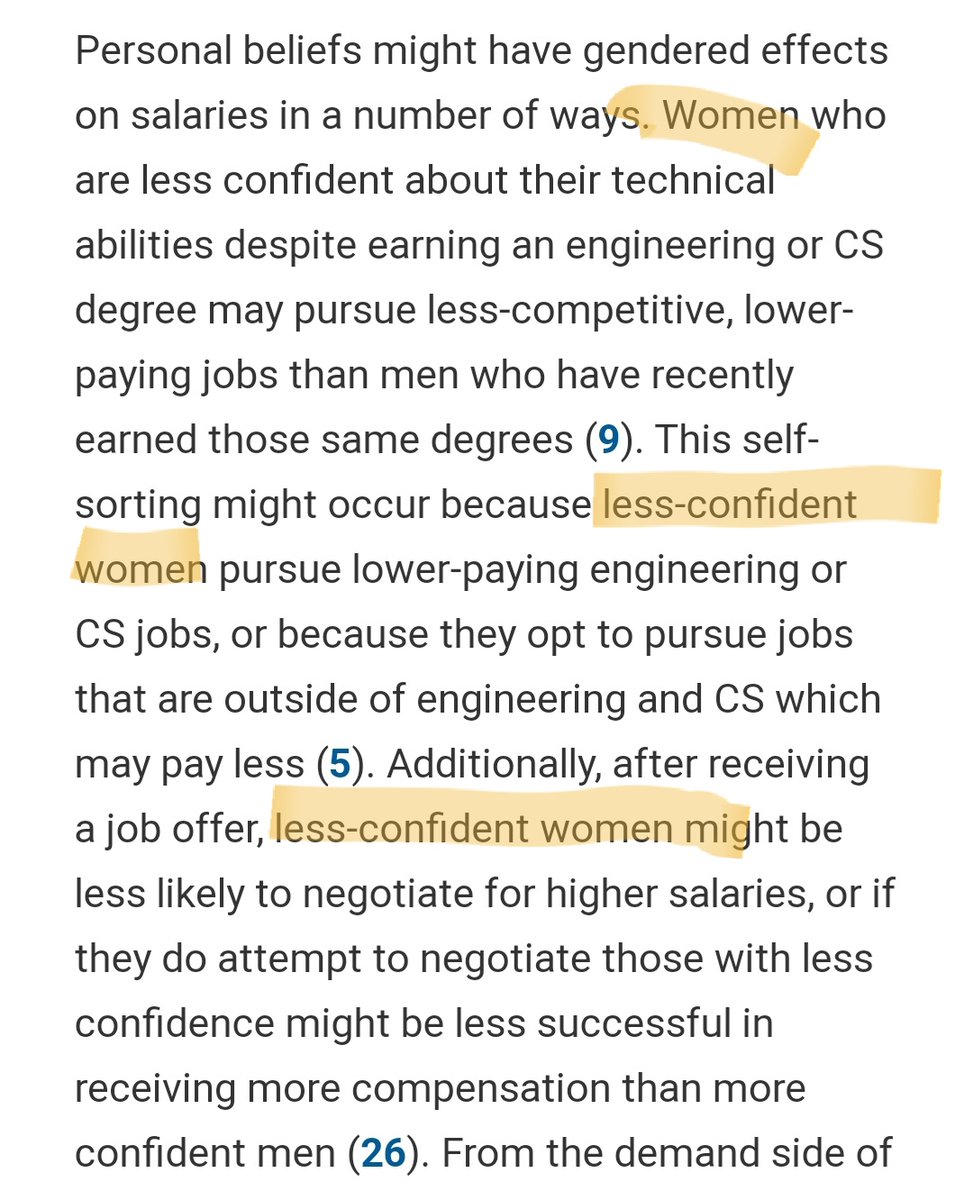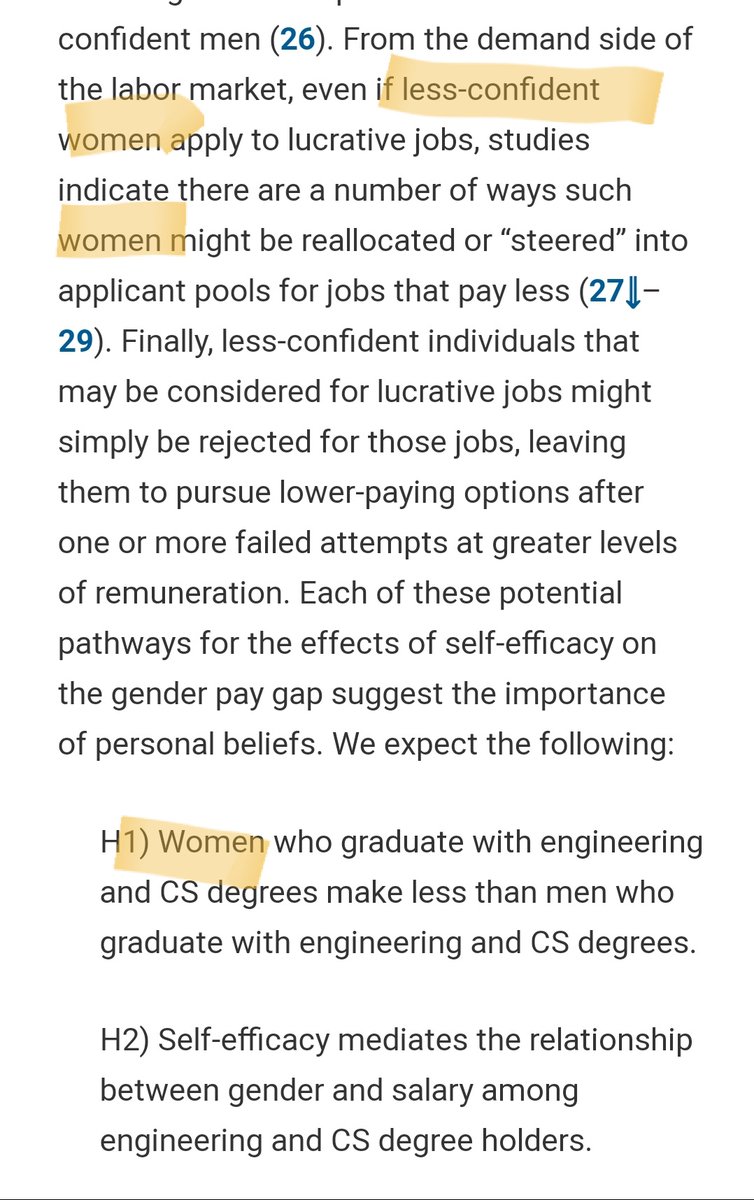I ended up having to explain why I& #39;m critical of this paper using words not gifs, so here it is (thread)  https://abs.twimg.com/emoji/v2/... draggable="false" alt="👇" title="Rückhand Zeigefinger nach unten" aria-label="Emoji: Rückhand Zeigefinger nach unten"> #WomenInSTEM #WomeninScience #patriarchy #leanin https://twitter.com/megcevans/status/1331572912508190722">https://twitter.com/megcevans...
https://abs.twimg.com/emoji/v2/... draggable="false" alt="👇" title="Rückhand Zeigefinger nach unten" aria-label="Emoji: Rückhand Zeigefinger nach unten"> #WomenInSTEM #WomeninScience #patriarchy #leanin https://twitter.com/megcevans/status/1331572912508190722">https://twitter.com/megcevans...
First, ok yes, the paper calls on organisations to look past confidence in its concluding comments. But it does this right at the end, after suggesting  https://abs.twimg.com/emoji/v2/... draggable="false" alt="✌️" title="Siegeshand" aria-label="Emoji: Siegeshand">mentoring
https://abs.twimg.com/emoji/v2/... draggable="false" alt="✌️" title="Siegeshand" aria-label="Emoji: Siegeshand">mentoring https://abs.twimg.com/emoji/v2/... draggable="false" alt="✌️" title="Siegeshand" aria-label="Emoji: Siegeshand"> to "strengthen students self-assessments", i.e build the confidence of these poor widdle women
https://abs.twimg.com/emoji/v2/... draggable="false" alt="✌️" title="Siegeshand" aria-label="Emoji: Siegeshand"> to "strengthen students self-assessments", i.e build the confidence of these poor widdle women
(make sure you& #39;re not being mentored by other women though!!!)
The study& #39;s background justification and hypothess all focus on women& #39;s confidence, not men& #39;s
These hypotheses are so simplistic I want to blow my brains out. And yes, that& #39;s how hypothesis testing works, but.... maybe... this method isn& #39;t up to dealing with the complexities of the problem?
And yes, there& #39;s only so much space to talk about stuff in a paper - but - it& #39;s singular focus on *~confidence~* as a predictor of course means it& #39;s going to come up as...a predictor. They surveyed graduates about self confidence and related that to salary. That& #39;s it.
What the study DIDN& #39;T do is survey the organisations or individuals hiring them, nor highlight the systemic socio-cultural issues (other than *~confidence~*) that influence pay gaps.
Finally, the title implies causality. This this would have been published in a supposedly selective and prestigious journal? #PNAS  https://abs.twimg.com/emoji/v2/... draggable="false" alt="🍆" title="Aubergine" aria-label="Emoji: Aubergine">
https://abs.twimg.com/emoji/v2/... draggable="false" alt="🍆" title="Aubergine" aria-label="Emoji: Aubergine">
Thanks @EzzyOD for highlighting this paper from 2012 (yes, in @PNASNews ) that did actually test the "demand side" of hiring https://twitter.com/EzzyOD/status/1331705335040466944?s=19">https://twitter.com/EzzyOD/st...

 Read on Twitter
Read on Twitter mentoringhttps://abs.twimg.com/emoji/v2/... draggable="false" alt="✌️" title="Siegeshand" aria-label="Emoji: Siegeshand"> to "strengthen students self-assessments", i.e build the confidence of these poor widdle women" title="First, ok yes, the paper calls on organisations to look past confidence in its concluding comments. But it does this right at the end, after suggesting https://abs.twimg.com/emoji/v2/... draggable="false" alt="✌️" title="Siegeshand" aria-label="Emoji: Siegeshand">mentoringhttps://abs.twimg.com/emoji/v2/... draggable="false" alt="✌️" title="Siegeshand" aria-label="Emoji: Siegeshand"> to "strengthen students self-assessments", i.e build the confidence of these poor widdle women" class="img-responsive" style="max-width:100%;"/>
mentoringhttps://abs.twimg.com/emoji/v2/... draggable="false" alt="✌️" title="Siegeshand" aria-label="Emoji: Siegeshand"> to "strengthen students self-assessments", i.e build the confidence of these poor widdle women" title="First, ok yes, the paper calls on organisations to look past confidence in its concluding comments. But it does this right at the end, after suggesting https://abs.twimg.com/emoji/v2/... draggable="false" alt="✌️" title="Siegeshand" aria-label="Emoji: Siegeshand">mentoringhttps://abs.twimg.com/emoji/v2/... draggable="false" alt="✌️" title="Siegeshand" aria-label="Emoji: Siegeshand"> to "strengthen students self-assessments", i.e build the confidence of these poor widdle women" class="img-responsive" style="max-width:100%;"/>



 " title="Finally, the title implies causality. This this would have been published in a supposedly selective and prestigious journal? #PNAS https://abs.twimg.com/emoji/v2/... draggable="false" alt="🍆" title="Aubergine" aria-label="Emoji: Aubergine">" class="img-responsive" style="max-width:100%;"/>
" title="Finally, the title implies causality. This this would have been published in a supposedly selective and prestigious journal? #PNAS https://abs.twimg.com/emoji/v2/... draggable="false" alt="🍆" title="Aubergine" aria-label="Emoji: Aubergine">" class="img-responsive" style="max-width:100%;"/>


